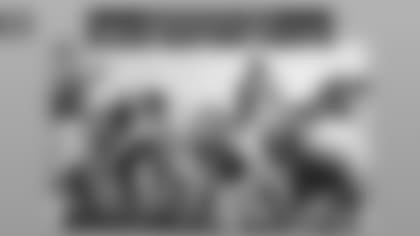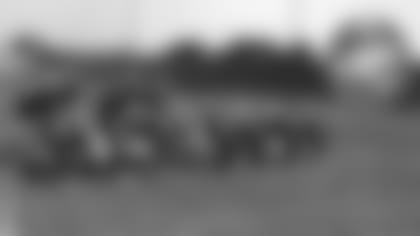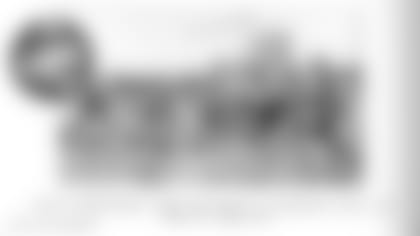On Sept. 21, 1924, the Packers blanked the Chicago Bears, 5-0, in a game at Green Bay's Bellevue Park.
It was only the second time the Bears played in Green Bay and the first time the Packers beat them. Through 1974, it also was counted by the NFL as a regular-season game and included in the all-time series between the two archrivals. But a year later, the NFL deleted the score from its Official 1975 National Football League Record Manual and it hasn't appeared since.
If the league had not done so, the regular-season series between the Packers and Bears would be tied today at 93-93-6 and the Packers could take the lead for the first time since 1932 when the two teams meet Sunday at Soldier Field. Instead, the 2016 Official NFL Record & Fact Book had the Bears leading the series by two games and following their loss to the Packers two months ago now lead 93-92-6.
So how is it that a game could be considered "official" for 50 years and then vanish from the record books?
As background, it's important to remember recordkeeping in the early years of the league was haphazard, at best. And, still today, there's plenty of erroneous data on individual players from the 1920s to the 1950s on nfl.com and in other so-called official record books.
But here's the real answer from Joel Bussert, who worked in the NFL office for 40 years before retiring in 2015 as its senior vice president of player personnel and football operations.
"Short answer is this: League minutes of July 25, 1924, state that a motion was made and carried that only games played between and including Sept. 27 and Nov. 30 would count in the league standing," Bussert explained in an email. "So the game between the Bears and Packers on Sept. 21 was an exhibition or preseason game, or whatever they called them in 1924."
Prior to his retirement, Bussert recorded all player transactions, operated the draft, served as the league's liaison to the Competition Committee and oversaw changes to the rulebook. He also was the NFL's resident historian and still is in retirement even if the title hasn't been officially bestowed upon him.
If you've never heard of Bussert, but are interested in learning more, he was featured in a Monday Morning Quarterback piece shortly before his retirement and author Peter King couldn't have illustrated more exquisitely how widely respected he was in league circles.
Based on my dealings with Bussert, I'd put him on my Mount Rushmore of pro football historians. So it came as no surprise when he included seven more detailed paragraphs in his email about the research and decision-making process that were part of the change roughly 40 years ago.
Bussert explained how as a graduate student at the University of Illinois in the late 1960s, he got into researching pro football news and results in old newspapers; and, in turn, realized prior to 1932, the wins, losses and ties didn't always add up in league standings. He also was aware there were disputes over which games counted and which didn't.
At some point during that period, Bussert hooked up with Bob Carroll, one of the founders of the Pro Football Researchers Association, and together they tackled a project to straighten out the records.
Meanwhile, Bussert also was building his resume. In 1966, as a college intern working for The Sporting News, he with the help of others compiled the first Football Register. In 1974, he was hired by the Elias Sports Bureau, which has been compiling the NFL's statistics and records since 1961. Bussert went to work for the NFL in April 1975 after much of his research on the early standings had been completed.
Dropping the 1924 Packers-Bears game played in Green Bay wasn't the only change made to the NFL's official records. In that season alone, Rock Island also lost one of its wins; Akron gained a victory; the Buffalo Bisons were given an additional loss; and Dayton and Kenosha each had a loss subtracted from their records.
Like anything else, there are questions that can be raised about the NFL's decision.
On Sept. 11, 1924, the Green Bay Press-Gazette published the "Official Schedule for 1924 of National Football Wheel." The Sept. 21 Packers-Bears clash was listed and was the only game that didn't fall between the Sept. 27 and Nov. 30 dates.
Could the owners have agreed at some point to make an exception for that game?
After all, NFL President Joe Carr appointed the officials for it, including Bobby Cahn, arguably the league's most respected referee at the time. When the Packers played non-league member Ironwood, Mich., in an exhibition the week before, they selected the officials. Two of the Packers' three choices were the high school coaches at Green Bay East and West.
But, clearly, in my recent research, I found much more evidence to show the change was merited.
The Press-Gazette ran the NFL standings for the first time that season on Oct. 17, and the Packers were credited with a 1-2 record after losing to Duluth and the Chicago Cardinals and beating the Kansas City Blues in league games. The Bears, who had lost to the Cleveland Bulldogs, and tied Rock Island and Racine in league games were listed with a 0-1-2 record.
From that point forward, the Press-Gazette continued to run the standings on a regular basis and the Sept. 21 Bears-Packers game was never included.
While the Press-Gazette neglected to inform its readers before the game that it was a non-league affair, it wasn't unusual for the paper to do so. When the Packers played Ironwood the previous week, the paper didn't identify it as an exhibition, either.
The gate for every game, including non-league affairs, was critical to the Packers' survival at the time and to announce beforehand a game wouldn't count in the standings would likely have sabotaged the bottom line.

The Packers take on the Chicago Bears at City Stadium, September 27th, 1925
More than likely, the more discerning fans, at least, figured out on their own the Ironwood game wasn't a league contest, but probably few, if any, were aware the Packers-Bears game wasn't. When the Press-Gazette announced the Packers' schedule on July 28, following the league meeting, it also included the Sept. 21 Packers-Bears game.
Nonetheless, even if the Press-Gazette didn't set the record straight beforehand, it noted several times afterward that it wasn't a league game.
On Nov. 5, the paper stated the Sept. 28 game against Duluth was "the opening game of the pro league season." On Nov. 19, four days before the Packers-Bears game in Chicago, it reported, "Early in the season, the Packers defeated the Bears, 5-0, in an exhibition game." On Nov. 28, the Press-Gazette noted a Dutch Hendrian fumble allowed the Bears to win the rematch and "get revenge for that pre-season defeat at Green Bay."
The Chicago Tribune also failed to mention in its two-paragraph story about the Packers-Bears battle in its Sept. 22nd edition that it was a non-league game, but described it as such in its preview story the day of the rematch. The Tribune never included the game in its weekly standings, either.
Still, it wasn't just the NFL and the Packers that included it in their records thereafter. So did the Bears, in their media guide. In 1974, they listed the Packers game as their only loss in their 6-1-4 season and, instead, marked their Oct. 5 loss to the Bulldogs as a non-league game.
In fact, the Bears included the Sept. 21, 1924, loss to the Packers in their list of scores until 1987, 10 years after the Packers had made the change. Even then, the Bears still didn't get their list of scores right until 1990, when they attached the "Instant Replay Game" asterisk to their 1989 scores.
Only since 1990 have the Bears listed their loss to the Bulldogs as their only 1924 defeat and been in agreement with the NFL's records.
In the end, however, it was the Bears, not the Packers, who came out the biggest losers in the record book that year.
When the final standings were published, following the final round of games on Nov. 30, Cleveland was recognized as the champion with a 7-1-1 record followed by the Bears at 6-1-4.
But that wasn't the end of the story. Here again, we'll let Bussert finish it.
"To make some more money, the Bears and Bulldogs decided to play a game in Wrigley Field (then known as Cubs Park) on Dec. 7," he wrote. "The Bulldogs considered this an exhibition, the Bears billed it as a game for the championship. The Bears won, 23-0, and Chicago newspapers hailed the Bears as champions.
"But at the league meeting a month after the season Cleveland was confirmed as league champion, based on games played between Sept. 27 and Nov. 30."
Bussert added, "Years later I was doing some research at Canton and ran across a letter from (George) Halas, who had written either to the Hall (of Fame) or the commissioner. … as an aside he added that the Bears were still claiming the 1924 championship."
Interestingly, the Packers seemed to have been in agreement at the time.
George Calhoun, the Press-Gazette's sportswriter and also publicist and secretary of the Packers, covered the Dec. 7 Bears-Bulldogs game in Chicago and wrote the Bears won "the National postgraduate football honors from the Cleveland Bulldogs." The Press-Gazette also changed its "Final Pro Standings" and put the Bears on top with a 7-1-4 record.
What's more, Packers fans were interested enough in the game in those days before radio broadcasts that a service was set up at Turner Hall in Green Bay so they could follow a play-by-play of the alleged championship "over a leased wire direct to the Cubs' park."
To this day, despite Halas' protestations, the NFL recognizes Cleveland as the 1924 champ.
As for the Packers, other than losing a win over the Bears, our biggest dilemma is how to historically treat the Sept. 21, 1924, game as our 100th anniversary approaches.
When the Packers celebrated their 50th anniversary, the 1969 Green Bay Packers Yearbook included the 1924 5-0 victory over the Bears as one of the 10 greatest in franchise history. After all, it was viewed for at least 50 years as the Packers' first victory over their hated rivals.
Today, the Packers' 14-10 win in 1925 at old City Stadium is listed as their first over the Bears.
But if tombstones could talk, there'd be a lot of original Packers fans howling in disagreement.















